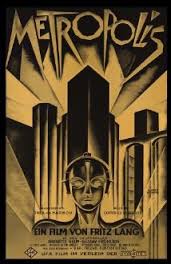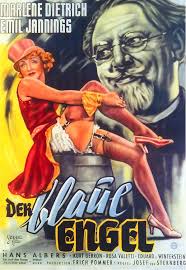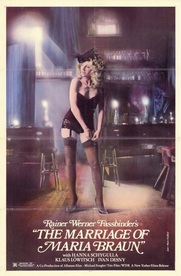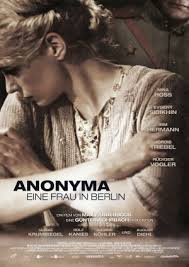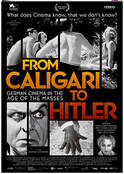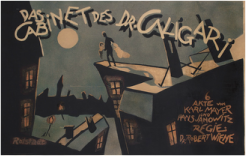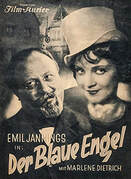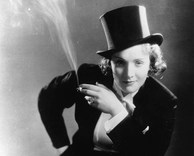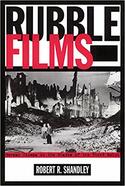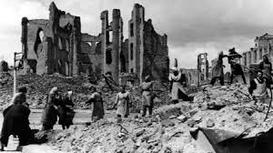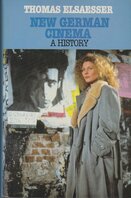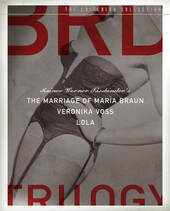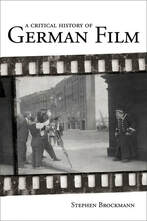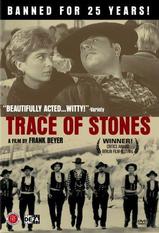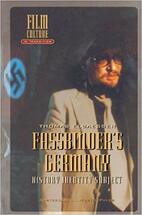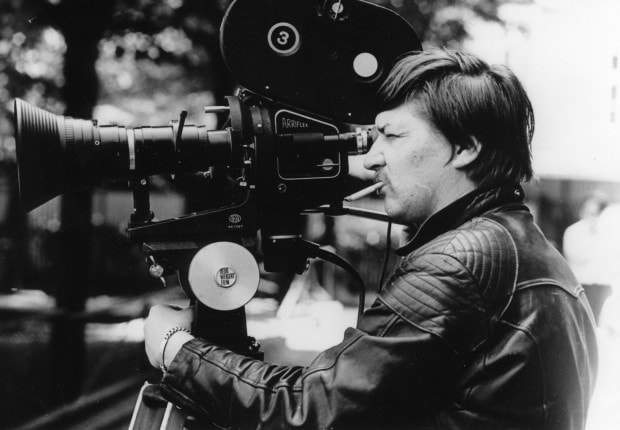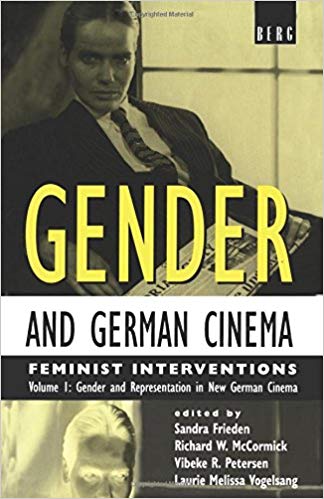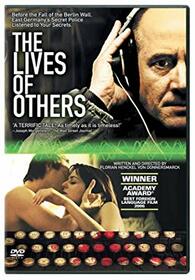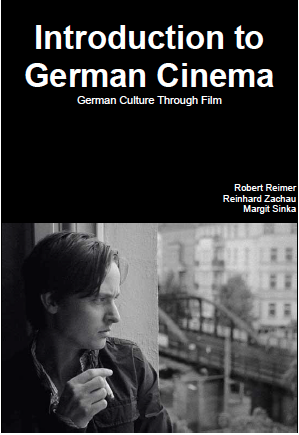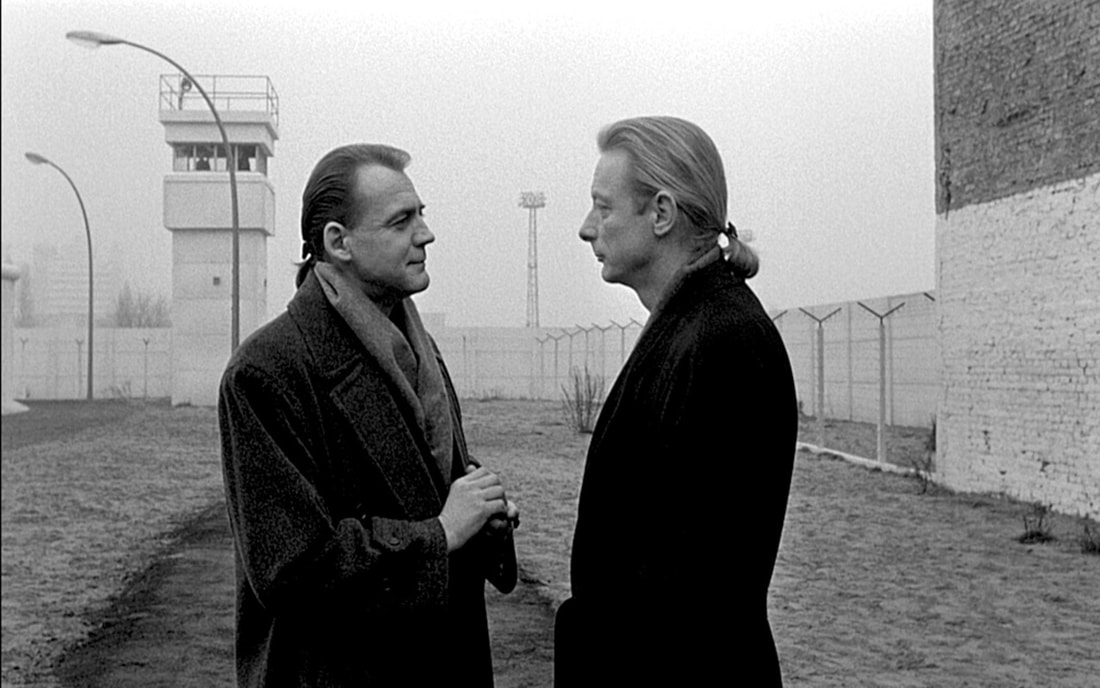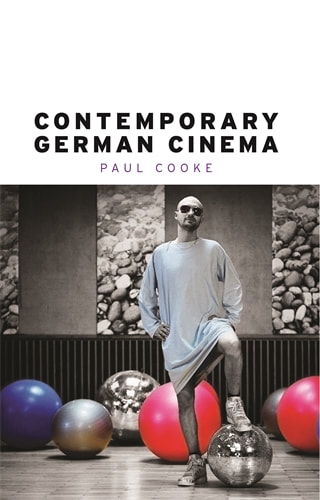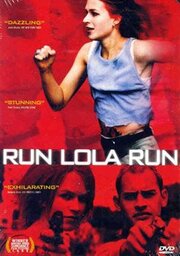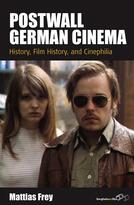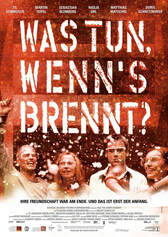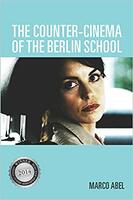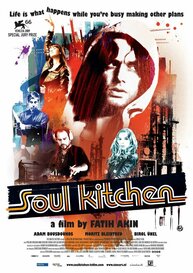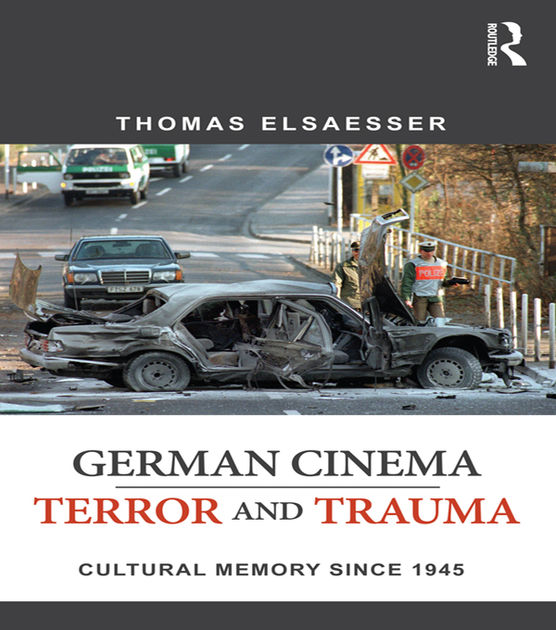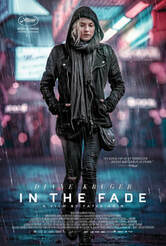German Film History
Taught in the Department of Germanic and Slavic Studies, University of Victoria, Fall 2011
Course by Dr. Kat Sark
Course by Dr. Kat Sark
Course Outline:
(Subject to changes / in progress)
|
DATE
Week 1
September 13, 2011 |
TOPICS
1920s Expressionism
The Cabinet of Dr. Caligari (dir. Robert Wiene, 1920) Metropolis (dir. Fritz Lang, 1927) READINGS:
|
EXTRA
|
|
Week 2
September 20, 2011 |
1930s Sound Cinema
The Blue Angel (dir. Josef von Sternberg, 1930) Cabaret, (dir. Bob Fosse, 1972) excerpts READINGS:
|
|
Week 4
October 4, 2011 |
1950s Economic Miracles
BDR Trilogy (dir. Rainer Werner Fassbinder, 1980-82) READINGS:
|
|
Week 5
October 11, 2011 |
1960s and 70s East German Cinema
The Trace of Stones (dir. Frank Beyer, 1966) The Legend of Paul and Paula (dir. Heiner Carow, 1973) READINGS:
|
|
Week 6
October 18, 2011 |
1970s West German Terrorism
Mother Küsters Goes to Heaven (dir. Rainer Werner Fassbinder, 1975) The Third Generation (dir. Rainer Werner Fassbinder, 1979) Baader-Meinhof Complex (dir. Uli Edel, 2008) READINGS:
|
|
Week 7
October 25, 2011 |
1980s STASI
The Lives of Others (dir. Florian Henkel von Donnersmarck, 2006) READINGS:
|
|
Week 9
November 8, 2011 |
1990s Reunification
Run Lola Run (dir. Tom Tykwer, 1998) Goodbye Lenin! (dir. Wolfgang Becker, 2003) Russendisko (dir. Oliver Ziegenbalg, 2012) READINGS:
|
Course Assignments:

For each class, students will be asked to keep a detailed film journal and take notes during and after the film screenings, in order to contribute to class discussions.
A copy of the journal entry is to be submitted after each screening (in electronic format).
For a sample journal format, please see the handout below:
A copy of the journal entry is to be submitted after each screening (in electronic format).
For a sample journal format, please see the handout below:
| Film Journal | |
| File Size: | 174 kb |
| File Type: | |
Bibliography:
Thomas Elsaesser, New German Cinema: A History. New Brunswick: Rutgers University Press, 1989.
Thomas Elsaesser, Fassbinder’s Germany. History Identity Subject. Amsterdam University Press, 1996.
Christian Braad Thomsen, Fassbinder: The Life and Work of a Provocative Genius. Transl. by Martin Chalmers, London: Faber and Faber, 1997.
Michael Töteberg and Leo A. Lensing, eds. The Anarchy of the Imagination. Interviews, Essays, Notes. Rainer Werner Fassbinder. Transl. by Krishna Winston, Baltimore: The John Hopkins University Press, 1992.
Juliane Lorenz, ed. Chaos as Usual: Conversations about Rainer Werner Fassbinder. Transl by Christa Armstrong, New York: Applause, 1997.
Robert C. Reimer, Reinhard Zachau, German Culture Through Film: An Introduction to German Cinema. Newburyport, MA: Focus Publishing, 2005.
Jaimey Fisher and Brad Prager, The Collapse of the Conventional: German Film and Its Politics at the turn of the Twenty-First Century. Detroit: Wayne State University Press, 2010.
Wim Wenders, On Film. London: Faber and Faber, 2001. (“The urban Landscape from the point of view of images” pp.375-383, “Find myself a city to live in” pp.384-402)
Stephan K. Schindler and Lutz Koepnick, eds, Introduction, The Cosmopolitan Screen: German Cinema and the Global Imaginary, 1945 to the Present. Ann Arbor: The University of Michigan Press, 2007, pp. 1-21.
Grant P. McAlliste, Romantic Imagery in Tykwer's "Lola rennt," in German Studies Review, Vol. 30, No. 2 (May, 2007), pp. 331-348.
Muriel Cormican, Goodbye Wenders: "Lola rennt" as German Film Manifesto, in German Studies Review, Vol. 30, No. 1 (Feb., 2007), pp. 121-140.
Stephen Brockmann, A Critical History of German Film. New York: Camden House, 2010.
Patricia Erens, Issues in Feminist Film Criticism (1990)
Thomas Elsaesser, Fassbinder’s Germany. History Identity Subject. Amsterdam University Press, 1996.
Christian Braad Thomsen, Fassbinder: The Life and Work of a Provocative Genius. Transl. by Martin Chalmers, London: Faber and Faber, 1997.
Michael Töteberg and Leo A. Lensing, eds. The Anarchy of the Imagination. Interviews, Essays, Notes. Rainer Werner Fassbinder. Transl. by Krishna Winston, Baltimore: The John Hopkins University Press, 1992.
Juliane Lorenz, ed. Chaos as Usual: Conversations about Rainer Werner Fassbinder. Transl by Christa Armstrong, New York: Applause, 1997.
Robert C. Reimer, Reinhard Zachau, German Culture Through Film: An Introduction to German Cinema. Newburyport, MA: Focus Publishing, 2005.
Jaimey Fisher and Brad Prager, The Collapse of the Conventional: German Film and Its Politics at the turn of the Twenty-First Century. Detroit: Wayne State University Press, 2010.
Wim Wenders, On Film. London: Faber and Faber, 2001. (“The urban Landscape from the point of view of images” pp.375-383, “Find myself a city to live in” pp.384-402)
Stephan K. Schindler and Lutz Koepnick, eds, Introduction, The Cosmopolitan Screen: German Cinema and the Global Imaginary, 1945 to the Present. Ann Arbor: The University of Michigan Press, 2007, pp. 1-21.
Grant P. McAlliste, Romantic Imagery in Tykwer's "Lola rennt," in German Studies Review, Vol. 30, No. 2 (May, 2007), pp. 331-348.
Muriel Cormican, Goodbye Wenders: "Lola rennt" as German Film Manifesto, in German Studies Review, Vol. 30, No. 1 (Feb., 2007), pp. 121-140.
Stephen Brockmann, A Critical History of German Film. New York: Camden House, 2010.
Patricia Erens, Issues in Feminist Film Criticism (1990)
Disclaimer: The contents of this site are copy-right protected and cannot be reproduced without the author's permission. © Katrina Sark, 2015.
